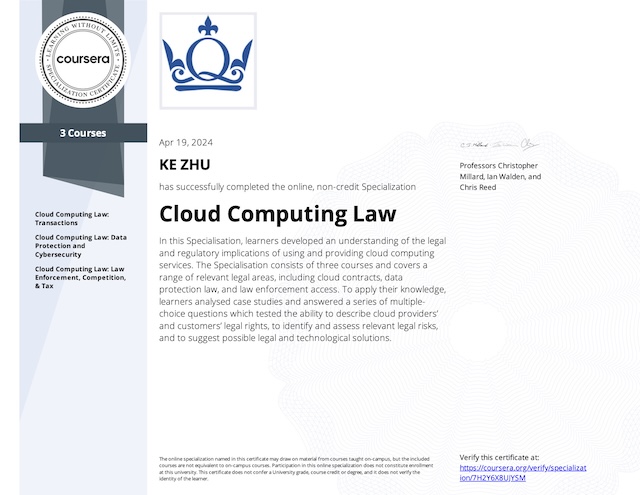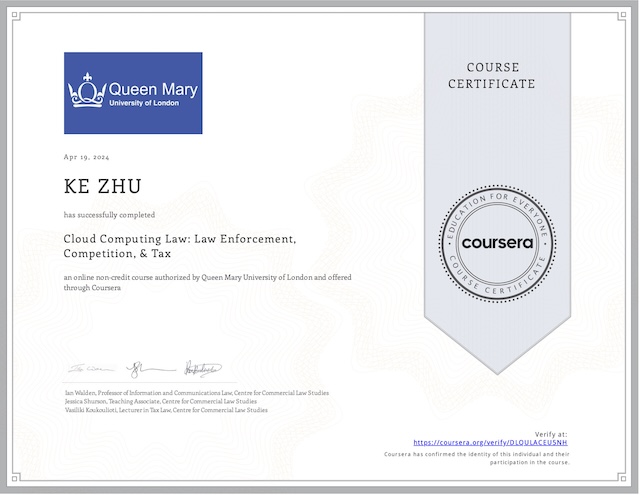What happens when an offeree attempts to accept an offer while modifying the terms? In the case Minneapolis & St. Louis Railway v. Columbus Rolling-Mill, the court held that, “A proposal to accept, or an acceptance, upon terms varying from those offered, is a rejection of the offer, and puts an end to the negotiation, unless the party who made the original offer renews it, or assents to the modification suggested.” The court also put, “the other party having once rejected the offer cannot afterward revive it by tendering an acceptance to it.”
Mirror Image Rule
The holding in Minneapolis and St. Louis railways is really a classic example of the common law mirror image rule. The mirror image rule operates with admirable simplicity.
- Any response by an offeree which varies or adds to the terms of an offer is treated as a counteroffer.
- In turn, that counteroffer terminates or blows up the original offer.
Under the mirror image rule, even a non-material variation can be fatal. The assumption, underlying the mirror image rule is that if the offeree introduces new or different terms, the offeree does not assent to the offer and further negotiation is required. Unilateral changes introduced by the offeree might change the offeror’s costs or risk. The offeror might agree to any changes but that should be the offeror’s choice.
However, the mirror image rule has its downsides. If you misstate any of the terms, you not only don’t accept, but your misstatement blows up the original offer and your option to accept is gone. It’s safer to accept by simply saying, “I accept, or okay, or done.”
“A reply to an offer which purports to accept it but is conditional on the offeror’s assent to terms additional to or different from those offered is not an acceptance but is a counter-offer.”
Section 59 of the Second Restatement of Contracts
The restatement, however, is a little more forgiving than the common law mirror image rule under Section 61, an offeree may request additional changes when she accepts an offer.
“An acceptance which requests a change or addition to the terms of an offer is not thereby invalidated unless the acceptance is made to depend on assent to the changed or added terms.”
Section 61 of the Second Restatement of Contracts
Under the common law, the mirror image rule is a default rule which can be contracted around by either the offeror or the offeree. An offeror can specify that an offer is not terminated by a counteroffer and an offeree can make a counteroffer without rejecting the original offer.
“An offeree’s power of acceptance is terminated by his making a counteroffer, unless the offeror has manifested a contrary intention or unless the counteroffer manifests a contrary intention of the offeree.”
Section 39 of the Second Restatement of Contracts
Conflicting Terms between Parties
When two companies are sending back and forth forms with conflicting terms, UCC section 2-207 deals with the basic question of whether there’s a contract. The section lays out different ways of forming the contract and different ways can produce different terms. So it’s important to separately address different routes to:
- whether a contract is formed and
- what are the terms of the contract if it is formed.
Contract Formation
UCC 2-207 subsection 1 first tell us that an expression of acceptance can operate as an acceptance, even if that expression states terms that are additional to or different from those that are offered.
A definite and seasonable expression of acceptance or a written confirmation which is sent within a reasonable time operates as an acceptance even though it states terms additional to or different from those offered or agreed upon, unless acceptance is expressly made conditional on assent to the additional or different terms.
UCC section 2-207 (1)
Subsection 1 also includes the famous unless clause which tells us that the two ways of creating a contract, the non-matching acceptance route and the non-matching confirmation route, that these two routes are not effective if acceptance is expressly made conditional on assent to additional or different terms.
Then the question boils down to whether the offeree’s form says that “the acceptance is conditional on the offeror’s accepting of the additional terms.” If that’s the case, then the form does not operate as an acceptance but operates merely as a counter offer.
Terms Formation
UCC 2-207 subsection 2 tells us what the actual contents of the contract are, if it is formed under subsection 1.
The additional terms are to be construed as proposals for addition to the contract. Between merchants such terms become part of the contract unless:
a) the offer expressly limits acceptance to the terms of the offer
UCC section 2-207 (2)
b) the materially alter it; or
c) notification of objection to them has already been given or is given within a reasonable time after notice of them is received.
According to the first sentence of subsection 2, the new terms are not included in the contract but are an offer to modify, if the other side agrees to this modification proposal.
The second sentence, however, lays out a different treatment of contracts formed under subsection 1 that are between two merchants.
Conduct of the Parties
Subsection 3 of 2-207 tells us what happens if there is no formation under subsection 1 but the parties conduct based on the evidences that they believe they were in a contract. If the parties act as if there is a contract by shipping, and accepting the goods. So, there can still be a contract based on their conduct. Secondly, it tells us what terms to apply when we’re going to have formation via party conduct, and those terms are going to be governed by what’s called the Knock Out Doctrine:
- Remove any terms on which the two parties do not agree.
- Replace with default terms from the UCC.
Essentially, subsection 3 provides both parties a third route to non-matching formation, and a Knock Out rule for determining what terms will be in the contract. Under the common laws mirror image rule, the party with the last form tended to win the battle of the forms, because each writing was therefore just a counteroffer. But UCC 2-207 subsection 3 sought to fix that.
Rolling Contracts
Rolling contracts are those formed over time with one party providing terms in batches, some before a given item is ordered and others later. But often, the latter batch of terms are unlikely to be read and will be accepted by conduct. Is it fair to make increasing use of such contracts when the offeror is aware the terms probably will never be seen or understood?
Two different cases laying out opposite lines of reasoning. The first (Hill v. Gateway) enforces the accept-or-return terms, the latter (Kocek v. Gateway) rejects them, exploring policy arguments and potential compromises for these kinds of transactions.
Clickwraps and Browsewraps
Clickwrap refers to an electronic agreement in which a user indicates agreement to terms by clicking on a radio button, checking a box or the like, usually as a condition of using the device or a piece of software.
Browsewrap refers to terms of use often found via link or website’s main page that purport to bind to users solely by virtue of his or her continued use of the site.
These terms come from the use of ‘Shrink wrap contracts’ which were frequently litigated in the 1990’s. Shrinkwrap contracts were commonly used in box software packages which contained a notice that by on the outside of the box that “by tearing open the Shrinkwrap, the user was assenting to the software terms enclosed with it.”
While clickwrap agreements are usually enforceable, browserwrap agreements are not enforceable unless they are sufficiently visible. Consumers rarely read clickwrap terms, or the terms in a browserwrap agreement either. A better option might be to ensure that sellers disclose terms that are unexpected and unfavorable.
Irrevocable Offers
An offer may typically be revoked at any time before the offeree accepts the offer. However there are exceptions to that rule. Reliance could make the offer irrevocable. Justice Traynor pointed to a promissory estoppel provision of the First Restatement. Recall that promissory estoppel is “If a promisee reasonably relies on a promise and changes position accordingly, the promise maybe binding even without consideration if justice so requires.”
“A promise which the promisor should reasonably expect to induce action or forbearance of a definite and substantial character on the part of the promisee and which does induce such action or forbearance is binding if injustice can be avoided only by enforcement of the promise.”
Section 90 of the First Restatement of Contracts
Promissory estoppel applies when a promisee relies on an unconditional promise. However, an offer is a kind of conditional promise which is conditioned on the other side’s return promise. To resolve this dilemma, Justice Traynor held that “Reasonable reliance resulting in a foreseeable prejudicial change in position affords a compelling basis also for implying the subsidiary promise not to revoke an offer for a bilateral contract.”
Traynor’s reasoning is now enshrined in a separate section of the restatement:
“An offer which the offeror should reasonably expect to induce action or forbearance of a substantial character by the offeree before acceptance and which does induce such action or forbearance is binding as an option contract to the extent necessary to avoid injustice.”
Section 87 of the First Restatement of Contracts
Indefinite, Incomplete and Deferred Terms
Raffles v. Wichelhaus
The key concept in the memorable case Raffles v. Wichelhaus is typically called “The Meeting of the Minds.” The idea is that in order for two parties to form a contract, they must be thinking the same thing when they make it. Their minds must meet, otherwise there hasn’t really been an agreement and so, there is nothing for the law to enforce.
Misunderstanding is different from mistake. Misunderstanding means that there was never a contract in the first place because there was no agreement. Mistake on the other hand involves false beliefs about aspects of what is being traded, and often means that the contract is not void but voidable by the mistaken party.
The doctrine about “meeting of the minds” has been enshrined in Section 20 of the Second Restatement. Subsection one deals with pure symmetric misunderstanding. If there’s an important ambiguous term in the contract and neither party or each party knows that it is ambiguous, and the other party is thinking of a different meaning, then there is no mutual assent. And so there is no contract.
Subsection 2 deals with the asymmetric version of the situation, where one party knows or should have known the other’s meaning but not vice versa. In these cases, the meaning attributed by the party that didn’t know is the meaning of the contract, and the contract is valid.
When two parties don’t understand key terms of a contract in the same way, there is no contract because there has been no meeting of the minds. But when the situation is asymmetric with one party knowing the other’s interpretation and not vice versa, both parties are bound to the interpretation that both of them are aware of.
Hoffman v. Red Owl Stores
In this case, despite the number of promises the court asserts existed, it’s actually somewhat difficult to pin down specific promises that Red Owl made to Hoffman. The communications, these utterances like “We’re all set and everything is ready to go.” certainly wouldn’t be definite enough to constitute an offer, to form a binding contract. Red Owl argued that “An agreement was never reached on essential factors necessary to establish a contract.”
The court had to determine whether promissory estoppel could apply when the promise in question did not “embrace all essential details of a proposed transaction between promisor and promisee so as to be the equivalent of an offer that would result in a binding contract.”
In holding that promissory estoppel could apply in this situation, the court explained that it was wrong to think of promissory estoppel as the equivalent of breach of contract. “The requirements of Section 90 did not,” the court said, “indicate anything at all about how detailed a given proposal was, or how close it was to a binding contract.”
When it comes to the damages, the court explained where damages are awarded in promissory estoppel instead of specifically enforcing the promisor’s promise, they should be only such as in the opinion of the court are necessary to prevent injustice. In this case, the plaintiff recovered damages in reliance. Usually courts will not award lost profits when a plaintiff is pursuing a promissory estoppel theory.
The Uniform Commercial Code imposes a duty of good faith as a mandatory part of all contracts. But while duties of good faith arise under contract, negotiators typically don’t owe each other any such duty. The succession of increasing demands certainly creates the appearance of a kind of bait and switch, a strategy that Red Owl was stringing Hoffman along, trying to get more and more out of this potential franchisee.
The law of promissory fraud can hold a promisor liable for punitive damages if the plaintiff can establish that the promisor at the time of promising, of making assurances, intends not to perform her promise. Red Owl’s repeated assurances probably aren’t enough to establish promissory fraud but they are moving in that direction.
Pre-Contractual Liability
Professor Alan Farnsworth provides a way of thinking about pre-contractual liability that offers some insights into why reliance damages are sometimes preferable. Farnsworth distinguishes between agreements to agree, and agreements to negotiate. Unlike the former, parties agreeing to negotiate recognize that if they fail to reach an ultimate agreement, they will not be bound, because the agreement to negotiate is not part of a larger agreement.
There is no possibility of a claim for a lost expectation. Indeed, there is no way of knowing what the terms of an ultimate agreement might have been, if one who had ever been reached. In such cases, reliance is appropriate, because that is the only interest that a party to an agreement to negotiate reasonably expects, should the other party pull out of the negotiations.
Red Owl is considered an incredibly influential case, which often is cited as the catalyst in the expansion of Promissory Estoppel doctrine to the liability for pre-contractual reliance. Parties must be very careful in negotiations, a realm in which representations are often taken with a grain of salt because reliance on such promises or representations may result in damages.
However some argued that the result of Red Owl is in fact unusual. There are research showed that courts consistently have denied recovery for pre-contractual reliance, unless the parties by agreeing on something significant, indicated their intention to be bound. In a sense, notwithstanding Red Owl and its progeny, the default is that it’s not reasonable to rely on pre-contractual promises.
Dixon v. Wells Fargo
The main issue in this case is whether promissory representations in preliminary negotiations give rise to pre-contractual liability when the promisee acts in reasonably foreseeable reliance upon those representations or promises to their detriment.
Thus, another way to frame this issue is simply whether promissory estoppel is available for pre-contractual promises. In this case, the court held that, yes, promissory estoppel is available for pre-contractual promises. It is a modern application of the case Red Owl. This case also stands for the proposition that reliance-based liability rather than the more exacting intent-based inquiry in Teachers Insurance is sometimes going to be chosen, at least during times of crisis.
My Certificate
For more on Contract Law: Counteroffers, Irrevocable Offers, and Indefinite Terms, please refer to the wonderful course here https://www.coursera.org/learn/contracts-1
Related Quick Recap
I am Kesler Zhu, thank you for visiting my website. Check out more course reviews at https://KZHU.ai



